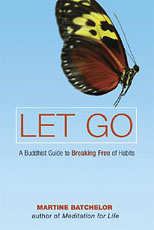"We compare ourselves to others either positively — I am better than they are — or negatively — They have a better life than I do. When we compare positively, it can have different consequences. It can help us to rejoice and appreciate our happiness and good fortune, and make us more compassionate and open to others less fortunate than us. However, it can also make us feel guilty about our good fortune and actually be a weight for us. This can happen to people who have inherited their fortune. It can also make us arrogant and dismissive of others who, we might feel, have not tried as hard as we have.
"Comparing is a natural thing to do; it is part of the evolution of competing for scarce resources. It can lead to competing for power or to competing to be more generous. In some cultures, the greatest honor and respect goes to people who are the most ostentatiously generous.
"When we compare negatively, we see what others have that we don't or what we want, we feel a deep sense of lack, of missing something, an unappeased sensation of hunger. It is a painful way to live — only looking and noticing what we don't have. It can make us bitter and profoundly unsatisfied. It gives us tunnel vision, which takes away any enjoyment or happiness that could be possible for us or is happening for us. Cultivating appreciation can help dissolve the power of this pattern.
"Appreciation, rejoicing, and gratitude are qualities that enrich our lives. To appreciate the fact that we are alive and breathing, that we can think, that we can make contact with others, that we can feel the sun or rain on our skin, is essential to our well-being."
